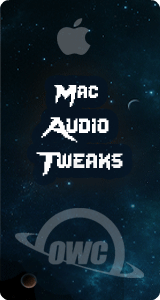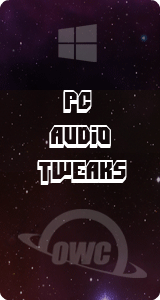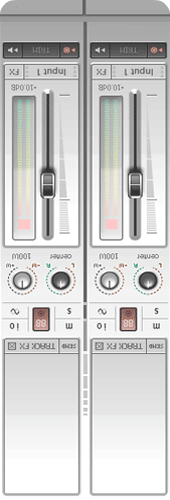12 tips on Destroying Writer’s Block: by Nathan Madsen

Writer’s block hits everyone, especially the more you work. Knowing how to work through it is critical to being able to hit deadlines, keep up morale and maintain forward momentum. Since writer’s block hits everyone in different ways there are all kinds of ways of working through it and it’s important to note that what might work the first time may not be the fix for the next round. Here’s a quick and dirty list some tactics that I’ve used in the past to get past writer’s block.
#1 - Listen to something else for a bit.
Give yourself a break! Especially if you’ve been writing for a while. A change of pace can really help refresh your mind and ears. Sometimes it can help to listen to something in the same style and genre you’re working in. Writing something in death metal/polka and are stuck? Listen to other death metal/polka music to get ideas and see how someone composed the music. Other times it can be more beneficial to listen to something completely opposite. Trying to score an awesome, epic orchestral/chorale piece? Try listening to punk for 30 minutes and get your heart racing. Then come back to the orchestral project.
#2 - Do some exercise!
A part of writer’s block is being too stressed about the task in front of you. I’m not a doctor (and I don’t play one on TV either) but I’ve found that when I’m too focused on the deadline, the sound I’m after or just too close to the project in general then getting away and doing some hard exercise can really help. This could be jogging, lifting weights, whatever. It often refreshes the body and the mind. Side note: often you can combine points one and two together if you find that helps. Listen to something while working out for a double whammy. Plus you’ll look better in that pair of jeans!
#3 - Change tasks/projects.
If you have multiple projects on your plate, then change things up a bit. Change over from the RTS game and work on the puzzle project for a bit. Later come back to the RTS. Writer’s block impedes momentum, your progress. The best way to get over writer’s block is to create new momentum, energy and progress. Usually I find I get a great deal more energy and motivation if I’ve been able to check off things on my “To Do” list.
#4 - Put it away until tomorrow.
There are times when you’ll actually do more harm by pushing and pushing in your studio instead of simply throwing in the towel and returning to it tomorrow. Never underestimate the power of a good night’s sleep. Having said that, you need to know how to listen to your body and mind. Push with all you’ve got when you’re frustrated and short on ideas but not too far. A good analogy is weight training. You never want to exceed what your body is capable of doing otherwise you might end up with an injury. Listen to your body and push it as far as you safely can. The same principle goes towards combating writer’s block.
#5 - Ask for more references of the project.
I always try to get as much references as possible for the games I work on but sometimes getting some updated levels, new character art, scripts, etc can reignite that creative spark. If the project is one in a series of games then try playing some of the other entries.
#6 - Always play the game with your music.
In some cases you’ll have a local build of the game where you can play the level while playing the music on your stereo. I find this to be a great motivator as well as a perfect way to test your music against the game’s visuals, gameplay, pace and mood. There may be other situations where you don’t get a playable build of the game for a while. In those cases take anything you have from the team and reference that while composing and listening to your music.
#7 - Pull in another composer or musician!
If the contract allows for it, and the team is okay with it, then pull in another composer or musician to work on a track or style that is giving you a hard time. Perfect example: I’m not a guitarist so certain styles of music are harder for me to emulate. In those cases I will subcontract out a great guitarist I’ve worked with to write the guitar parts. I write everything else and send him the backing tracks as well as the mock ups I’ve already done. He’ll record the guitar parts, add in his own pizazz then I’ll mix everything down. We all develop our own signature sounds and ruts (for example similar melodies, chord progressions, instrumentation common in our general body of compositions) so bringing in another person with a different approach can really freshen things up!
#8 - Always end on a positive note.
This is something I learned from my practice sessions during grad school. I would practice, on average, 4-5 hours a day, 6 days a week. There were times I’d get so frustrated about my practice sessions and where I was musically. My wife, whom I openly admit is much smarter than me, suggested that I try ending with something I was really good at. Could be a certain song, scale or just improvising for a while. I started doing this for the last 15-20 minutes of each session and it really helped my motivation and morale. If you’re really struggling with a project then try to end each day with something you’re really good at to keep morale up.
#9 - Take a trip down memory lane.
Hopefully you’re archiving EVERYTHING you’re doing so when you’re feeling stumped creatively, try going back through your catalog of material. This can help with two things. You’ll most likely find little gems of songs that were started but never finished that might work great for this new project. Or you can also take note of how your production and composition skills have improved over the years. This can help improve morale as well as give you some additional ideas to work with.
#10 - Reference other scores or text books.
If you went to college for music, or studied it privately then bust out those old text books and scores! Analyze the scores and orchestration. The more references, approaches and ideas you give yourself, the more equipped you’ll be for working through writer’s block.
#11 - Ask for help and ideas.
Hopefully all of you are involved in active communities of composers and other freelancers. Ask for ideas of how to get past writer’s block. Even share a sample of the work you’re struggling with (if the NDA/contract allows it) to get some direct input. Ask others how they work. Sometimes it might be as simple as changing the time of day you’re trying to work. Super frustrated and limited on ideas late at night? Try waking up early and writing!
#12 - Keep your studio area like a sanctuary.
What do I mean by this? Hundreds of lit candles and Gregorian chant in the background? For some, sure! But my point is the area where you compose music is highly personal and should reflect your personality. If you can create best in a messy, dark hole of a studio then keep your studio that way. If you work best in a brightly lit, super clean room then keep it as such. Know what affects you the best and strive to make your studio match that. What ever gives you a sense of peace and creativity is going to serve you better than just trying to emulate what you’ve seen in other studios. It’s all about you and what makes you work best.
Final Thoughts
For me, writer’s block is all about being too close to a project. It’s about stress and frustration. Do things that relieve that stress and frustration and take time to get away from the project for a little bit. When writer’s block comes to you, and it will, don’t freak out about it. Even John Williams gets writer’s block. He just knows how to work through it and past it. This should hopefully liberate you and allow you to simply focus on how best to work through the rough patch.
Nathan Madsen is an award winning composer-sound designer who has worked on over 140 projects in the video game, anime and indie film markets. On top of audio work, Nathan has written articles for various game audio books, hosted two video game composition competitions, taught college audio classes and taken part in a lecture series at Austin GDC. More info and samples of his work can be found at: www.madsenstudios.com.







